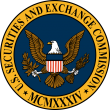US and UK regulators take lead on AML fines for 2019
The US and UK financial regulators lead the way in anti-money laundering (AML) penalties issued in 2019, collectively accounting for more than 30% of the $8.14 billion total handed out in fines globally.
Between 1 January and 31 December 2019, a record-breaking 58 AML fines were issued – 37 of which were handed out by American and British regulators, renown for being some of the most active regulatory bodies in the world.
This is double the amount and nearly double the value of penalties handed out in 2018 which saw just 29 fines coming to the sum of $4.27 billion imposed globally, according to analysis by Encompass Corporation.
Source: Encompass Corporation
With US regulators issuing the highest number of penalties at 25, coming to the sum of $2.29 billion, British regulators took second place globally issuing 12 penalties totalling $388.4 million – a notably smaller amount in fines for the number of penalties it doled out.
Read more: Central Bank of the Bahamas pilots digital Sand Dollar
France had the highest single AML fine of $5.1 billion. This was down to Swiss bank UBS after it was found guilty of illegally soliciting clients and laundering the proceeds of tax evasion.
“The court can only conclude that (UBS) consistently put its own financial interests over the sovereign rights of the French state,” the court’s president Christine Mee said in her ruling, “hence, the crimes are exceptionally serious”.
The $5.1 billion fine exceeded UBS’s net profit in 2018, signalling to other financial institutions that AML violations will be treated with a new sense of severity by certain regulators.
“Multi-million dollar fines have been commonplace for a while, but we are now seeing more penalties of one billion dollars or over, with two in 2019 alone,” says Encompass Corporation’s co-founder and CEO Wayne Johnson, who also refers to Standard Chartered’s $1.1 billion fine in April 2019.

Standard Chartered was fined $1.1bn for poor money-laundering controls and breaching sanctions against countries including Iran
Issued by both US and UK regulators, Standard Chartered was fined for poor money-laundering controls and breaching sanctions against countries including Iran.
Related: Signicat CEO: The internet has destroyed consumer trust
Looking across the board, the average monetary fine was $145.33 million in 2019 and under half of these were given to banks, compared to the much larger two-thirds of penalties which hit banks in 2018.
“Historically, the majority of these fines have been given to banks, but this year the proportion was less than half, demonstrating that money laundering is now recognised as a general business issue, not just one that is specific to financial services,” says Johnson.
“Regulators in the gambling and gaming sector were particularly active in 2019, handing out five fines, all of which were well over $1 million and the highest being $7.2 million,” Jonson continues.
“Interestingly, four of these were in the UK, demonstrating a crackdown here.”
UBS’s $5.1 billion fine still does not trump the $8.9 billion AML fine issued in 2014, which saw France’s biggest bank – and the world’s eighth largest bank by assets – BNP Paribas fined by US regulators for transferring billions of dollars on behalf of Sudan and other countries blacklisted by the US.
Read next: Qatar International Islamic Bank picks IBM for fraud prevention












































